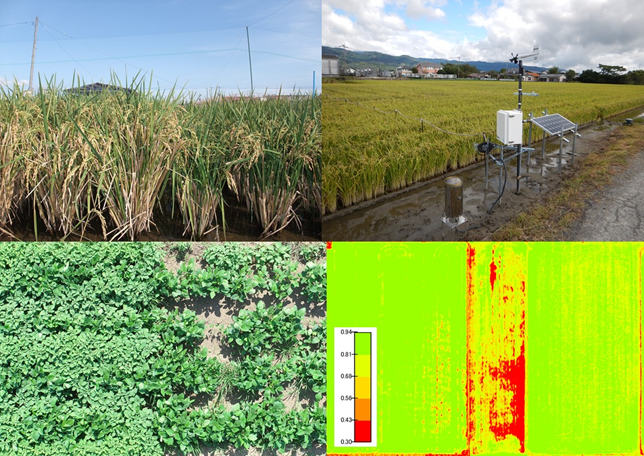In order to reduce meteorological risks such as wet and dry damage, high temperature damage, and lack of sunshine in the lowland crop rotation system in warm regions, it is important to develop technologies to diagnose meteorological risks and to develop cultivation technologies that respond to meteorological risks. The Advanced Lowland Farming Group is engaged in,
- Development of a technique to diagnose the effect of rainfall variation in lowland crop rotation system on timely work (rainfall risk)
- Development of growth diagnosis and topdressing technology system for stable production with reduced weather risk
- Development of low-cost, high-yield technology utilizing the regeneration ability function of paddy rice
- Development of an optimization model that can present the optimal cropping index and cropping time in the lowland crop rotation system under Meteorological Risks etc.
Through these technological developments, we will contribute to the realization of highly profitable lowland crop rotation farming that enables stable production even under unfavorable weather conditions.

Top right: Field weather observations for the creation of indicators for work judgment
Bottom left: Measures against weeds that are difficult to control in soybeans (Uncontrolled area on the left and controlled area on the right)
Bottom right: Multispectral image of paddy rice growth (right)
Members
Chikugo Research Station
- HARA Takahiro (Leader)
- HAKATA Makoto
- IMAIZUMI Toshiyuki
- OKAMI Midori
- NOMIYAMA Ryosuke
- RAKOTO Andoniaina
- Xuping Ma
Koshi Headquarters
- SHIBATA Shohei (Deputy Leader)
- OKAZAKI Yasuhiro
- ONISHI Chie
- MOCHIZUKI Ryota





